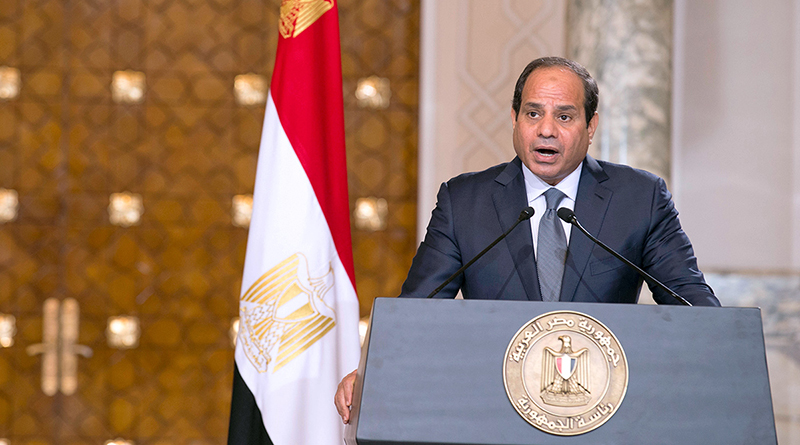by Maye Sadek
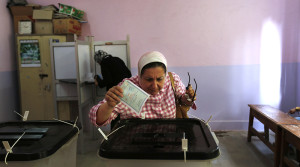
Egypt started this week the last step of its transitional roadmap with the first phase of the parliamentary elections. The long awaited parliament is essential to enhance investors’ confidence in the economy and political stability.
The coming parliament has the mission of approving the government that will take steps in economic reforms. According to 2014 Constitution, the president’s appointment of a prime minister must be approved by parliament. It is also entitled to review more than 300 laws that were issued by presidential decrees in the absence of the parliament during.
The High Election Committee (HEC), the judicial body in charge of supervising the parliamentary elections, announced on Saturday that seven electoral coalitions will contest the first stage of the polls that is taking place between 17 and 28 October, including the first and second round of this stage.
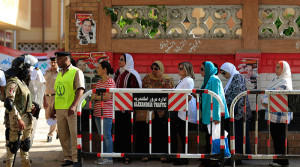 14 governorates are included in the first stage: Giza, Fayoum, BeniSuef, Minya, Assiut, New Valley, Sohag, Qena, Luxor, Aswan, Red Sea, Beheira, Alexandria and MarsaMatrouh.
14 governorates are included in the first stage: Giza, Fayoum, BeniSuef, Minya, Assiut, New Valley, Sohag, Qena, Luxor, Aswan, Red Sea, Beheira, Alexandria and MarsaMatrouh.
Some 27,402,353 voters were registered to take part in the elections’ first round on Sunday and Monday. This stage aims to choose 226 MPs of a total of 596 out of 2,573 electoral candidates.
Voting for foreign-based Egyptians took place earlier on Saturday, in 139 embassies and consulates around the world. Ministry of foreign affairs described the turnout to be moderate.
Egypt has had no parliament since June 2012 when a court dissolved it, under the rule of the ousted president Mohamed Morsi. The parliamentary election was repeatedly postponed for several reasons after 30 June 2013.
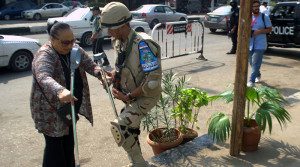 In spite of this the primary observations indicate a relatively weak turnout, especially on the first day of the vote. Elections committee said it was 1.9 per cent of registered voters in 14 governorates who participated till Sunday noon.
In spite of this the primary observations indicate a relatively weak turnout, especially on the first day of the vote. Elections committee said it was 1.9 per cent of registered voters in 14 governorates who participated till Sunday noon.
At the end of the first day it announced them to be 2.27 per cent.
The committee said that 13,878 women and 3,130 men have voted on the first day. 7,225 of those who voted are over 61 years old, while the younger demographic ranging in age between 18-21 are the least to participate as only 263 of them have voted so far.
However, the prime minister said that the true number is not let less than 15 per cent, according to what the governors reported, which is a reasonable percentage for parliamentary elections.
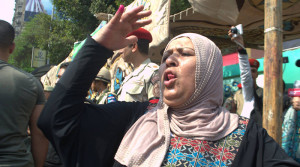 The weak turnout came in spite of an intense media campaign preceded the parliamentary elections, with television ads telling people that their vote would definitely make a difference as Egypt completes its political roadmap.
The weak turnout came in spite of an intense media campaign preceded the parliamentary elections, with television ads telling people that their vote would definitely make a difference as Egypt completes its political roadmap.
Several television presenters warned against a possible repeat of the scenario that brought the Muslim Brotherhood to power, this time through the rise of the SalafistNour Party, the only Islamist party involved in the current elections.
On Saturday, Egyptian president Abdel-Fattah El-Sisi called “all Egyptians to actively participate” in the elections, adding that he wants to see Egyptian youth at polling stations as they are “the main driving engine,” as well as Egyptian women, “the national icon for sacrifice”.
Omar Maarwan of the HEC, who is in charge of the polling process, said at a press conference early on Sunday afternoon that the number of women voters so far has been “four times greater” than that of men.
He added that the 60-plus age group was the most represented group while 18 to 21-year-olds were the least.
To encourage people to vote, the cabinet gave state employees a half-day off on Monday, the second day of voting in the first stage of the country’s parliamentary elections.
The prime minister expected this step to raise the participation. He called public and private companies and organisations to facilitate to employees to go voting.
Governors in several governorates took measures to encourage people to vote.
In Alexandria the governor announced the public transport to be free between 1 and 9 pm to make it easier for voters to reach poll stations.
In MarsaMatrouh, the governor made buses available for remote villages to help voters reach the poll station.
In Menia, the governor ordered the university to end all lectures at 2 pm, to facilitate to students and professors to vote.
Some public authorities like Cairo Airport Authority, allowed the employees to leave as early as 11.30 to go voting.
The government is expecting better results when the final results are announced.
The previous elections, which took place directly after January Revolution, saw a historic turnout that exceeded 50 percent, in stark contrast to the 2010 elections when less than 20 percent of eligible voters cast their ballot amid widespread reports of fraud and electoral irregularities under Mubarak’s regime.

